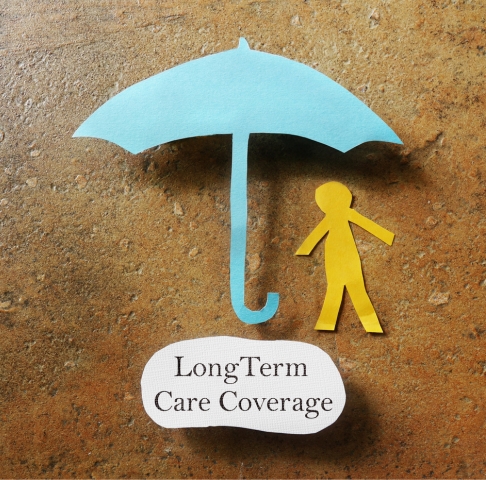A job in the public sector is colloquially touted as an “iron rice bowl” by many. The sector oversees critical functions which protect and serve the nation, something people equate with job security.
If you’ve always thought that all jobs in the public sector require donning a uniform and being on the frontline, and all private sector work requires us to dive into the corporate world – prepare for some surprises. While there are overlaps between working in the private and public sectors, there are also some key distinctions that will affect your next career move.
We also speak to Effin Jamalludin, Senior Vice President of Singlife’s People Function about his experience in both private and public sectors of work.
Private sector
The private sector consists of jobs spanning industries such as retail, construction and manufacturing. Businesses in this sector are owned by private individuals or corporate enterprises, and work in this category usually focuses on entrepreneurial agendas, taking on a higher risk to create jobs and generate business profits. With this incentive, work tends to be more competitive.
A quick summary:
- Owned by private individual shareholders.
- Does not require state participation or management.
- Private goods and services which serve individuals or businesses.
- Workers are employees and independent contractors.
- Competitive environment with incentives such as commissions, bonuses.
Public sector
The public sector consists of all government-owned or government-affiliated organisations with services provided to the public, such as uniformed personnel in security and safety or work in legal or education systems. Other functions oversee natural resources, public transportation, infrastructure, housing and medical services. It can relate to citizen welfare such as unemployment benefits or family services.
Aside from full-time SAF servicemen, police and SCDF personnel, there are non-uniformed personnel who make up the pool of employees in public service. These include about 150,000 public officers working in 16 ministries and more than 50 statutory boards and organs of state.
A quick summary:
- Overseen and managed by the state.
- Providing public goods or services which benefit the public.
- Higher perceived job security.
If you’re a first-jobber, your medical coverage is crucial to keep you protected. Read all about it here.
Private vs Public sector
With these key differences laid out, perhaps a crucial consideration when choosing between private and public sectors relates to the benefits of working in each.
While self-fulfillment comes in different forms, working in the public sector might be considered more fulfilling work as the duties are developed with serving the nation at large in mind, equipping public officers with the instincts needed to consider their work’s impact for the public. Comparatively, the private sector – which sees less restrictions since they operate independently, often develop their goals to be more individualistic or business-orientated.
That’s not to say that private and public sectors don’t offer various opportunities for career growth or personal development. Other benefits to pay attention to when considering between a private and public sector role include salary, flexibility in work arrangements and welfare benefits for staff (which sometimes extend to immediate family members).
Both sides of the coin
Effin, who has worked in both sectors, gives us further insight into the differences and how each can help you work towards your career goals.
Having worked in both private and public sectors in your career, what are the major differences you observed?
Effin: While there are some distinctions between the two, I do feel the public sector has transformed significantly through the last decade. Salaries are relatively comparable now, and the pace can be fast in certain government organisations.
Public sector:
- Greater focus on professional and personal growth, with opportunities for development.
- More exposure beyond the organisation (i.e., cross-collaboration, work inter and intra the ministry to supporting national initiatives, working with ministers).
- Higher perception of job security – low likelihood of retrenchment since it’s less impacted by economic and market forces.
Private sector:
- Organisations can be nimbler due to a leaner, less-layered structure; I’ve found decision making is quicker and there’s easier access to leadership groups.
- Less distinct and less strict on hierarchy – there’s less concern about challenging the status quo and providing a contrarian opinion, which allows for more opportunities to contribute to departmental and organisational strategies.
- There’s less emphasis on paper qualifications or whether one is a degree-holder or the “Scholars” vs “Farmers” distinction to progress up the career ladder, which influences speed or progression and potential ceiling of both.
Are there any tangible benefits of working in either sector which spoke to you more at the time?
Effin: Perhaps unique to my role as a Psychologist under a specialist scheme was the opportunity for structured development with professional certifications and a dedicated supervisor. These were important reasons to why I joined the public sector then.
Additionally, working in the public sector allowed me to play a big part in making societal advancements which has a direct impact to Singaporeans (e.g., government policies, public programmes).
What’s a piece of advice you’d give to anyone considering a career switch to either sector?
Effin: Be agile and adaptable! Embrace the values you can bring to any workforce by finding ways to leverage past knowledge, skills and experience – prepare to apply them in novel situations to deliver results and make an impact.
A recap
The bottom line
Ensure you join a sector which speaks to you and your career goals in life. Regardless of whether you take the private or public route, you’ll also want to consider how your potential employer protects you, on and off the job – even better if your family members are covered too. For instance, if you’re a public officer, you and your loved ones are entitled to affordable insurance coverage under Singlife’s POGIS (Public Officers Group Insurance Scheme), which offers term life and critical illness protection.
These days, many private firms also extend such protection benefits to their staff under their employee benefits package in order to attract and retain talent.
It’s crucial for any employee to be adequately safeguarded against the unexpected, such as death and critical illnesses like cancer. This way, you won’t have to worry about burdening your family members with financial stress should there be unfortunate bumps in life.








